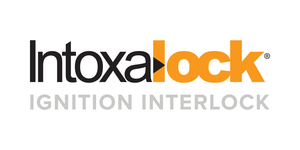LONG BEACH, Calif., Aug. 17, 2016 /PRNewswire/ -- After reaching an all-time low in 2011 – with 774 fatalities involving individuals with a blood alcohol level of 0.08 or greater – the State of California has experienced a steady increase of drunk driving-related deaths with as many as 882 last year, representing 28.7 percent of all total traffic deaths.1
Headlines of California newspapers continue to tell this tale: "DUI Suspect Drives with Body Lodged in car for a Mile after Hit-And-Run," "Woman Gets 22 Years to Life in Santa Ana DUI Crash that Killed 6-Year-Old Girl," "AG Woman Wore Monitoring Device at Time of Fatal Hit-and-Run, Officer Says."
In an attempt to turn the rising tide of drunk driving fatalities, Senator Jerry Hill introduced legislation (SB 1046) to require all people convicted of a California DUI to have an ignition interlock device installed on their vehicle. The legislation would extend the current pilot program – which covers 13 million people in four counties including Alameda, Los Angeles, Sacramento, and Tulare – to a statewide law.
Under this legislation, first-time offenders are required to install an ignition interlock device for six months, a year for a second offense, two years for a third offense and three years for a fourth or subsequent offenses.
"People know that driving under the influence is illegal, but far too many still ignore the law or think it doesn't apply to them," said Brad Fralick, Intoxalock director of government relations. "Alcohol-related traffic crashes are 100 percent preventable."
"Alcohol check points and monitoring bracelets will slow a repeat offender down and interrupt their habits for a time. But, none of them can stop a car from starting if a person who has been drinking is behind the wheel. Ignition interlock devices are the only solution that can," he said.
An ignition interlock device is a breathalyzer that is installed into the dashboard of a person's vehicle. The device must be blown into before the engine can be started. If alcohol is detected on the breath sample, the vehicle will not move. Once the vehicle is successfully started, the breathalyzer must be blown into at random times throughout the drive.
According to a news release, ignition interlock legislation is MADD's number one legislative priority across the country and in California. In the past 30 years, more than 50,000 people have died in California because of drunk drivers and more than one million have been injured. Repeat DUI offenders account for about one-third of annual DUI convictions. According to the U.S. Centers for Disease Control, ignition interlocks are effective in reducing repeat drunk driving offenses by 67 percent.
MADD has compiled data on the California ignition interlock pilot program since its inception in 2010 and found that, across the nation, interlock devices have prevented more than 1.77 million, with a blood alcohol concentration of .08 and above, from driving. In California, the devices have prevented more than 124,000 drunk driving attempts.
Frank Harris, MADD director of government affairs, said in a news release, some in the California Department of Motor Vehicles oppose the bill (SB 1046), believing the current system of suspensions to be effective. "By taking away someone's license, it's a hope for the best approach. The DMV and the state government, using hope as a strategy to fight drunk driving, are not going to stop drunk driving."
Statistics compiled by MADD show 50 to 75 percent of convicted drunk drivers continue to drive on a suspended license.
SB 1046 allows convicted drunk drivers to get an ignition interlock in order to avoid a license suspension that could cost them their job. Currently, these drivers have to wait at least 30 days before getting an ignition interlock.
As part of the last federal highway bill, the U.S. Congress created an ignition interlock incentive grant program for states, which pass legislation similar to Senator Hill's bill. If California passes this legislation, it could be eligible for an additional $1.9 million in federal funding.
To date, 28 states and the District of Columbia have enacted all-drunk driving offender ignition lock laws.
About Intoxalock
Headquartered in Des Moines, Iowa, Intoxalock (http://www.Intoxalock.com) developed its state-of-the-art ignition interlock device in conjunction with researchers from Iowa State University. Recently celebrating their 23rd anniversary in the alcohol monitoring business, Intoxalock currently services clients that are legally required to install an IID or home alcohol-monitoring unit in 41 states across the nation, in addition to voluntary clients in all other states. In the last 10 years, the ignition interlock industry has grown three-fold and is expected to continue as drunk driving legislation strengthens.
1 Statistic provided by MADD.
Logo - http://photos.prnewswire.com/prnh/20151029/281987LOGO
SOURCE Intoxalock
Related Links
WANT YOUR COMPANY'S NEWS FEATURED ON PRNEWSWIRE.COM?
Newsrooms &
Influencers
Digital Media
Outlets
Journalists
Opted In





Share this article